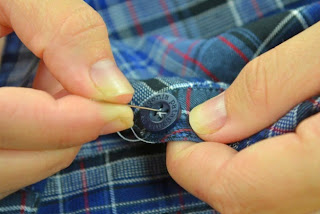LPC812 RC5 IR Remote Control Codec

Since LPC812MiniKit is application oriented, we will publish a series of applications available now. LPC812 has an advanced peripheral SCT, which is suitable for timing related algorithm. NXP has offered comprehensive application notes and demo codes for SCT in LPC812. Although SCT in LPC812 has only two state variables, its counterpart in LPC18XX/43XX has much more variables. It is still very handy for most simple timing applications, such as infrared remote control used in consumer electronics. You can donwload cookbook of LPC812 SCT from LPCware.com. There are serveral demo projects for Keil inside the zip file, which has rc5_send and rc5_receive. RC5 is widely used in many devices from Philips electronics, including TV, DVD, lighting and others. Philips has introduces RC6 standard to replace it, but RC5 is still popular. Labs on LPC812 Mini Kit The rc5_send and rc5_receive are straigh forward. You can test them on LPC812MiniKit easily. RC5_REC...


